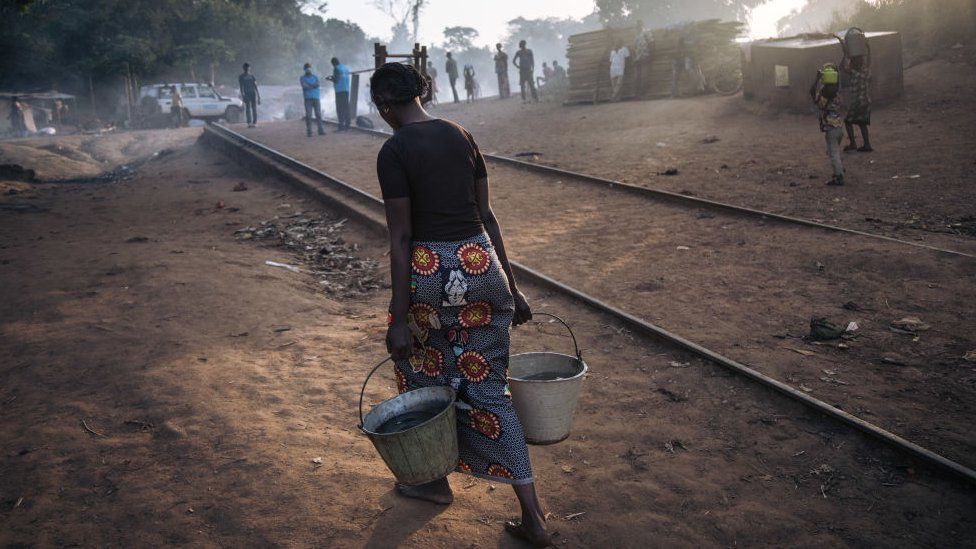Some staff fear the charity has not learnt the lessons of the 2018 Haiti scandal, the Times reports.

image copyrightGetty Images
UK charity Oxfam says it has suspended two members of staff in the Democratic Republic of Congo over allegations of sexual exploitation and bullying.
The charity said the suspensions were part of an “external investigation” set up last November into the allegations.
Its statement follows a report in the Times newspaper that whistleblowers were “frustrated at the length of time taken to complete the investigation”.
Oxfam was hit by a scandal in 2018 involving its aid workers in Haiti.
The charity was accused of covering up the use of prostitutes by some members of staff who were in the country following the devastating 2010 earthquake.
Oxfam denied a cover up but apologised for mistakes in its handling of the scandal, set up an independent commission into working practices and stopped bidding for UK government funding.
The charity had only recently been allowed to start applying for government funding again, the Times reports.
The newspaper says a 10-page letter signed by more than 20 current and former Oxfam staff was sent to the organisation’s leadership in February.
It made allegations against 11 people that included sexual exploitation, bullying, fraud and nepotism, and said whistleblowers had faced “threats to their lives”.
Some of the complaints dated back to 2015, and the letter said staff had “lost faith in Oxfam’s promises of accountability and in the principles Oxfam says it stands for”.
In its statement, Oxfam says the Charity Commission was notified at the start of the investigation of the latest allegations and is being kept informed about its progress.
“We are acutely aware of our duty to survivors, including in supporting them to speak out safely,” the charity said. “We are working hard to conclude the investigation fairly, safely and effectively”.
Oxfam, on its website, says it has been working in the DRC since 1961 and is “currently providing clean water, sanitation and emergency food to approximately 700,000 internally displaced people, refugees and host communities”.